YOU HAVE GOT TO BE KIDDING, RIGHT
Hong Kong is ready for Gay Games 2022As organizers, we are unified in our commitment to the success and preserving the legacy of the Gay Games in Hong Kong.
Commentary by Dennis Philipse and Lisa Lam,
co-chairs of Gay Games 11 Hong Kong 2022
Friday, July 23, 2021

HONG KONG, CHINA - NOV 25, 2017: Members of the Legislative Council and NGOs join the pride parade in support minority rights.Photo: Shutterstock
We’re less than 500 days away from Hong Kong hosting Asia’s first Gay Games in November 2022, a region where two-thirds of the world’s population live. As momentum and excitement continue to build around our preparations, so does the socio-political commentary among certain quarters – both good and bad.
As organizers, we are unified in our commitment to the success and preserving the legacy of the Gay Games in Hong Kong, and remain confident that this celebration of the Games’ values of participation, inclusion and personal best will outshine and outlive any dissenting voices.
Related: Hong Kong has become a police state. So why are the Gay Games still being held there?
We recognize that Hong Kong – and indeed, the world – is a very different place from 2017 when we celebrated our city’s winning bid to host the 2022 Gay Games. The city has gone through two turbulent years: first, our normally peaceful and orderly city was rocked by protests and social unrest; then we, like the rest of the world, felt the devastating impact of the COVID-19 pandemic.
Despite the many challenges and difficulties, there have been some bright spots during this time. To date, our city has one of the world’s lowest COVID-19 infection and death rates despite never being locked down, thanks to the community spirit of our population. Wearing masks for the greater good was never an issue here.
Our quintessentially Asian, vibrant city of seven million inhabitants has always been a melting pot of diversity and multiculturalism. This city’s LGBTQ+ community in 2021 is thriving more than ever before, with a growing public interest in pro-queer social groups and events, through long-established organizations such as Pink Alliance, Big Love Alliance, and Rainbow of Hong Kong, and widely-supported annual events such as the Hong Kong Pride Parade, the Hong Kong Lesbian and Gay Film Festival and Pink Dot.
Hong Kong enjoys one of the world’s lowest crime rates, one of the world’s highest life expectancies, and visa-free access for visitors from 145 countries and regions. We are proud of our reputation as a world city, ranked third in the Cato Institute’s 2020 Human Freedom Index behind only New Zealand and Switzerland. While 2021’s Pride parade was canceled due to public health concerns related to Covid-19, LGBTQ+ events have never encuntered opposition from the Hong Kong Government.
Gay Games is organized by a diverse team of 180 passionate volunteers, and funded with the support of LGBTQ+ and ally communities, participants, commercial partners, and sponsors. The event also enjoys the support of many branches of the Hong Kong government, including the HK Tourism Board, InvestHK (department for foreign direct investment), Equal Opportunities Commission, and BrandHK (government news service). Hong Kong’s Chief Executive Ms. Carrie Lam has also voiced her support for its ideals and pledged her government’s support for the event.
The LGBTQ+ community has also made significant progress with notable advances in both legal rights and growing public acceptance and support.
It’s been 30 years since Hong Kong’s Legislative Council passed historic legislation to decriminalize homosexual acts and despite room for improvement when it comes to LGBTQ+ rights and protections, public support in 2021 is higher than ever before and trending in the right direction. For example, a 2019 longitudinal survey from the Chinese University’s Sexualities Research Programme found that 60% of Hong Kong residents agree that there should be legal protection against discrimination for people of different sexual orientations. This percentage surged to 80% among respondents in the 18 to 34 age bracket.
A number of legal victories have also been achieved in support of Hong Kong’s LGBTQ+ movement in areas such as spousal rights.
Yet in spite of this progression on all fronts, there remains a level of conservatism with regards to LGBTQ+ rights both in Hong Kong and other parts of Asia. While there has been no direct opposition to LGBTQ+ rights in a legislative sense, to politicize the issue and suppress not only the Gay Games, but the entire LGBTQ+ community in Hong Kong. We are resolute and united against those efforts. As organizers of the Games, we know we must not be complacent, and why the work to spread messages of inclusivity and positivity must continue unabated.
This is the reason for us to bring the Gay Games to Hong Kong, the first time in Asia.
The event will bring diverse groups of people together to experience shared moments of joy through sports, arts and culture, community, and fun. We hope to build a sense of community that will last a lifetime. For people from Asia, it will be a great opportunity to join the event close to their hometowns. This will be an unforgettable experience, to feel the inclusiveness of joining a sport, arts, and culture event that’s bigger than themselves, together with more than 12,000 participants, and over 75,000 spectators and volunteers from 100 countries.
As the world emerges from the worst of the COVID-19 pandemic, Gay Games Hong Kong will be a symbol of the strength of the human spirit, resilience, and solidarity. We are saddened to witness so much division in the world today, but that is precisely the reason for our community to persevere, to stay united, and make Gay Games a resounding success.
During these turbulent times, our theme of “Unity in Diversity” is more salient than ever. We have the opportunity to make Gay Games a symbol of love triumphing over hate, of human connections trumping geopolitics, of understanding over misinformation.
Hong Kong and its people are ready to welcome participants and spectators from all over the world to Gay Games 2022 with arms and hearts open.
See you in November 2022!
Dennis Philipse and Lisa Lam are the co-chairs of Gay Games 11 Hong Kong 2022.

HONG KONG, CHINA - NOV 25, 2017: Members of the Legislative Council and NGOs join the pride parade in support minority rights.Photo: Shutterstock
We’re less than 500 days away from Hong Kong hosting Asia’s first Gay Games in November 2022, a region where two-thirds of the world’s population live. As momentum and excitement continue to build around our preparations, so does the socio-political commentary among certain quarters – both good and bad.
As organizers, we are unified in our commitment to the success and preserving the legacy of the Gay Games in Hong Kong, and remain confident that this celebration of the Games’ values of participation, inclusion and personal best will outshine and outlive any dissenting voices.
Related: Hong Kong has become a police state. So why are the Gay Games still being held there?
We recognize that Hong Kong – and indeed, the world – is a very different place from 2017 when we celebrated our city’s winning bid to host the 2022 Gay Games. The city has gone through two turbulent years: first, our normally peaceful and orderly city was rocked by protests and social unrest; then we, like the rest of the world, felt the devastating impact of the COVID-19 pandemic.
Despite the many challenges and difficulties, there have been some bright spots during this time. To date, our city has one of the world’s lowest COVID-19 infection and death rates despite never being locked down, thanks to the community spirit of our population. Wearing masks for the greater good was never an issue here.
Our quintessentially Asian, vibrant city of seven million inhabitants has always been a melting pot of diversity and multiculturalism. This city’s LGBTQ+ community in 2021 is thriving more than ever before, with a growing public interest in pro-queer social groups and events, through long-established organizations such as Pink Alliance, Big Love Alliance, and Rainbow of Hong Kong, and widely-supported annual events such as the Hong Kong Pride Parade, the Hong Kong Lesbian and Gay Film Festival and Pink Dot.
Hong Kong enjoys one of the world’s lowest crime rates, one of the world’s highest life expectancies, and visa-free access for visitors from 145 countries and regions. We are proud of our reputation as a world city, ranked third in the Cato Institute’s 2020 Human Freedom Index behind only New Zealand and Switzerland. While 2021’s Pride parade was canceled due to public health concerns related to Covid-19, LGBTQ+ events have never encuntered opposition from the Hong Kong Government.
Gay Games is organized by a diverse team of 180 passionate volunteers, and funded with the support of LGBTQ+ and ally communities, participants, commercial partners, and sponsors. The event also enjoys the support of many branches of the Hong Kong government, including the HK Tourism Board, InvestHK (department for foreign direct investment), Equal Opportunities Commission, and BrandHK (government news service). Hong Kong’s Chief Executive Ms. Carrie Lam has also voiced her support for its ideals and pledged her government’s support for the event.
The LGBTQ+ community has also made significant progress with notable advances in both legal rights and growing public acceptance and support.
It’s been 30 years since Hong Kong’s Legislative Council passed historic legislation to decriminalize homosexual acts and despite room for improvement when it comes to LGBTQ+ rights and protections, public support in 2021 is higher than ever before and trending in the right direction. For example, a 2019 longitudinal survey from the Chinese University’s Sexualities Research Programme found that 60% of Hong Kong residents agree that there should be legal protection against discrimination for people of different sexual orientations. This percentage surged to 80% among respondents in the 18 to 34 age bracket.
A number of legal victories have also been achieved in support of Hong Kong’s LGBTQ+ movement in areas such as spousal rights.
Yet in spite of this progression on all fronts, there remains a level of conservatism with regards to LGBTQ+ rights both in Hong Kong and other parts of Asia. While there has been no direct opposition to LGBTQ+ rights in a legislative sense, to politicize the issue and suppress not only the Gay Games, but the entire LGBTQ+ community in Hong Kong. We are resolute and united against those efforts. As organizers of the Games, we know we must not be complacent, and why the work to spread messages of inclusivity and positivity must continue unabated.
This is the reason for us to bring the Gay Games to Hong Kong, the first time in Asia.
The event will bring diverse groups of people together to experience shared moments of joy through sports, arts and culture, community, and fun. We hope to build a sense of community that will last a lifetime. For people from Asia, it will be a great opportunity to join the event close to their hometowns. This will be an unforgettable experience, to feel the inclusiveness of joining a sport, arts, and culture event that’s bigger than themselves, together with more than 12,000 participants, and over 75,000 spectators and volunteers from 100 countries.
As the world emerges from the worst of the COVID-19 pandemic, Gay Games Hong Kong will be a symbol of the strength of the human spirit, resilience, and solidarity. We are saddened to witness so much division in the world today, but that is precisely the reason for our community to persevere, to stay united, and make Gay Games a resounding success.
During these turbulent times, our theme of “Unity in Diversity” is more salient than ever. We have the opportunity to make Gay Games a symbol of love triumphing over hate, of human connections trumping geopolitics, of understanding over misinformation.
Hong Kong and its people are ready to welcome participants and spectators from all over the world to Gay Games 2022 with arms and hearts open.
See you in November 2022!
Dennis Philipse and Lisa Lam are the co-chairs of Gay Games 11 Hong Kong 2022.
Popular Gay TV Show in Hong Kong Draws Political Attacks, Raising Worries Over Rights
The hit romance has been praised by LGBT groups, but a pro-Beijing lawmaker said it broke China’s national security law
WALL STREET JOURNAL By July 23, 2021
Show starring boy band singers Anson Lo and Edan Lui is first drama on mainstream Hong Kong television to focus on same-sex relationships
Cultural observers say the 15-part series that aired this summer has reshaped public perceptions of city’s sexual minority groups
Chris Lau
Published: 25 Jul, 2021

Canto-pop stars Edan Lui and Anson Lo in Ossan’s Love. Photo: ViuTV
The love stories of gay men are rarely featured on Hong Kong television, but the recent popularity of a romantic comedy airing on a major channel suggests a shift in public attitudes to same-sex relationships.
The 15-episode series Ossan’s Love – a ViuTV remake of a Japanese show – marked the first time that a mainstream Hong Kong television station had produced and screened a drama focusing mainly on gay relationships.
Featuring two heartthrobs from the city’s hottest boy band, Mirror, the story follows a journey of self-discovery by Edan Lui Cheuk-on’s straight character “Tin Tin”, who comes to question his sexuality after being pursued romantically by his male boss. The show’s original title means “old men” in Japanese.
6 LGBT athletes who made history at the Olympic Games
15 Jul 2021
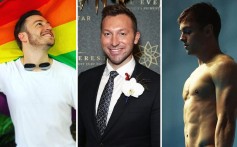
Anson Lo Hon-ting, another star from the 12-member Canto-pop group, plays “Ah Muk”, who is Tin Tin’s gay housemate and has a crush on him.
Lui’s character eventually falls for Ah Muk and he professes his love for his housemate in a scene that diehard fan Vivan Cheng found especially touching. “I just keep looping it,” she confessed. “It was really sweet.”
Cultural studies scholars and activists now suggest the significance of the show – which ran daily between late June and mid-July – has gone beyond its commercial and artistic value.
They argue the programme and its ensuing popularity is reshaping public perceptions of the city’s sexual minority groups, which are often marginalised by the local media.
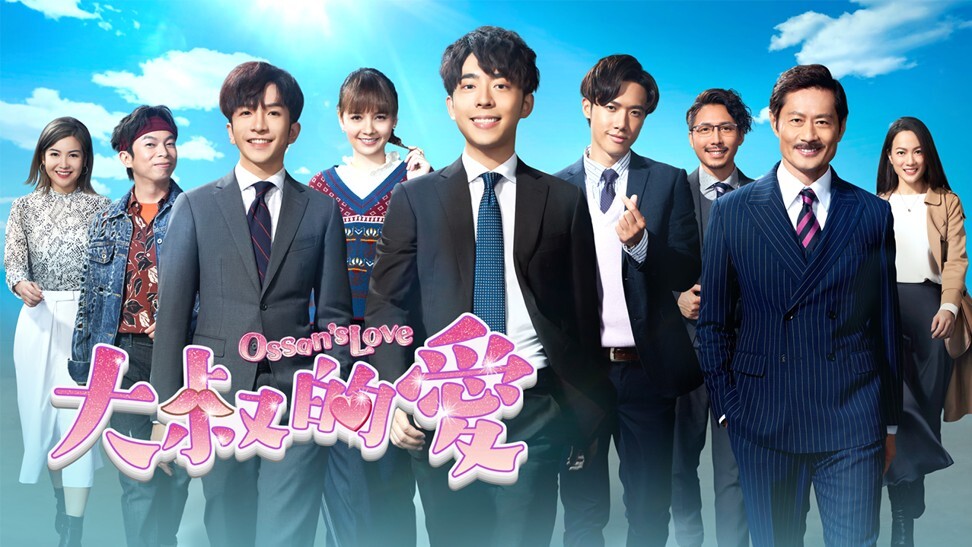
Ossan’s Love has been a television hit in Hong Kong. Photo: ViuTV
Some have said its influence is already visible, suggesting officials and politicians are treading more cautiously on
LGBT issues, including applying extra care over the terminology they use.
“The show is making history by featuring such themes on television,” said associate professor Denise Tang Tse-shang, from Lingnan University (LingU).
“It has provided space for people to start being curious,” she added.
The scholar, who specialises in media and gender studies, said gay characters in the past were often cast in side roles and painted in a negative light, following a certain stereotype.
In the past three years, the city’s cinemas have screened Tracy, a film about a transgender character’s struggle, and Suk Suk – or “Uncle Uncle” – which explores the lives of older gay men.
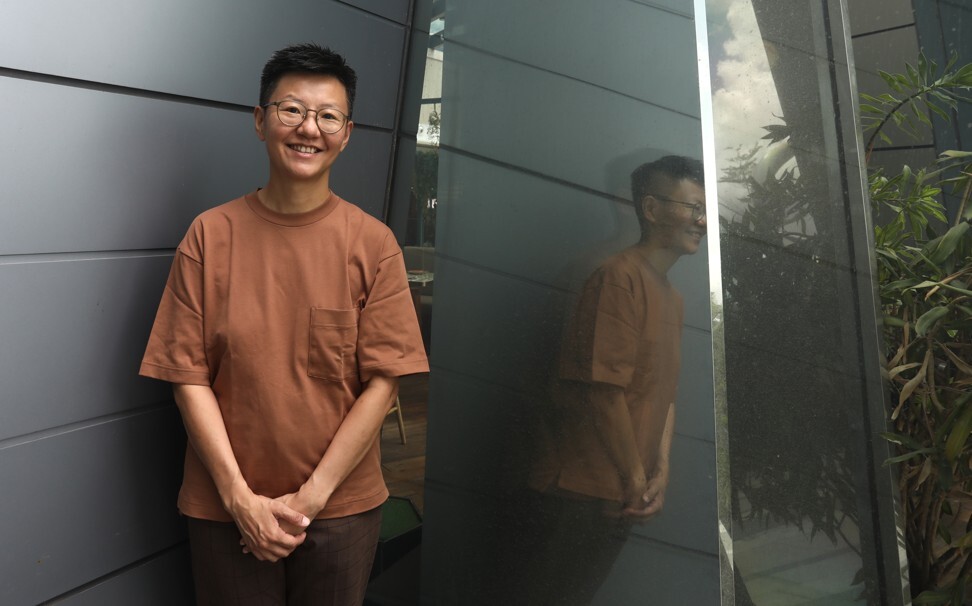
Denise Tang, from Lingnan University. Photo: Jonathan Wong
Tang said both films were a success, but they were confined to audiences who attended cinema screenings, as opposed to watching on free-to-air television.
Riding on Lui and Lo’s stardom, the latest show had sparked discussion among housewives and even straight men, she said.
Kelly Chan Wing-lam, a 21-year-old university student and an avid viewer of the show, found that her mother had tuned in, as well her friends.
“We talked about which scene caught our eye,” said Chan, a fan of Mirror.
Divided paths: finding acceptance as elderly gay men in Hong Kong
But Cheng, in her 30s, noticed that not every fan of the series was prepared to embrace diversity, nodding towards some of her older female colleagues.
“They basically said they still could not accept gay people, unless they are as handsome as Anson Lo,” she recalled.
Associate professor Lucetta Kam Yip-lo, from Baptist University’s department of humanities and creative writing, said the original Japanese series did not attempt to cover gay relationships in a particularly realistic way, and never intended to take up the baton of gay rights.
“The stories are fictionalised and romanticised relationships between young men and they do not necessarily reflect the life of gay men in real life,” she said.
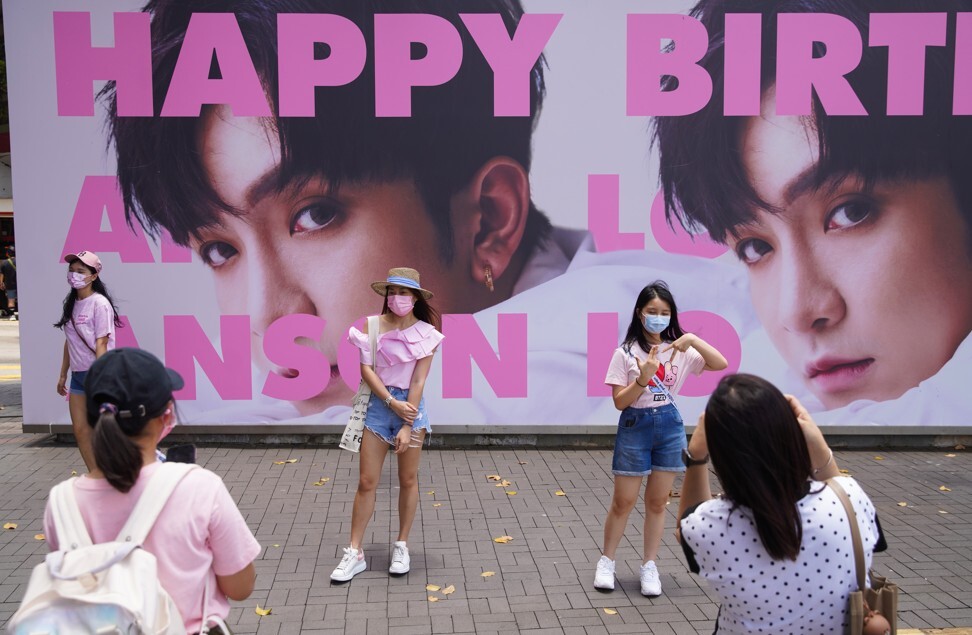
Anson Lo, whose fans crowdfunded an advert wishing him happy birthday, stars in Ossan’s Love. Photo: Winson Wong
But she suggested the show had helped to challenge some stereotypes for Hong Kong audiences, who were mostly drawn to the show by the appearance of Mirror singers rather than the same-sex love element.
Jerome Yau Ming-lock, chief executive of LGBT group Pink Alliance, said the series had heralded subtle changes to the political landscape.
He pointed to Chief Executive Carrie Lam Cheng Yuet-ngor’s remarks when she was asked about the show last week.
Support there for Hong Kong parents struggling to accept children who are LGBTQ
3 Apr 2021

Even though Lam again refused to commit herself to introducing an anti-discrimination law based on sexual orientation, she urged people not to adopt “a discriminatory attitude or even hurl malicious abuse” at those from sexual minority groups.
“From my memory, I have not seen the chief executive use such strong wording on this issue,” Yau said.
But pro-establishment lawmaker Junius Ho Kwan-yiu, who has been vocal in LGBT debates, reportedly said earlier this week that the show had breached the Beijing-decreed national security law because it advocated the lifestyle of childless families, contrary to the country’s three-child policy.
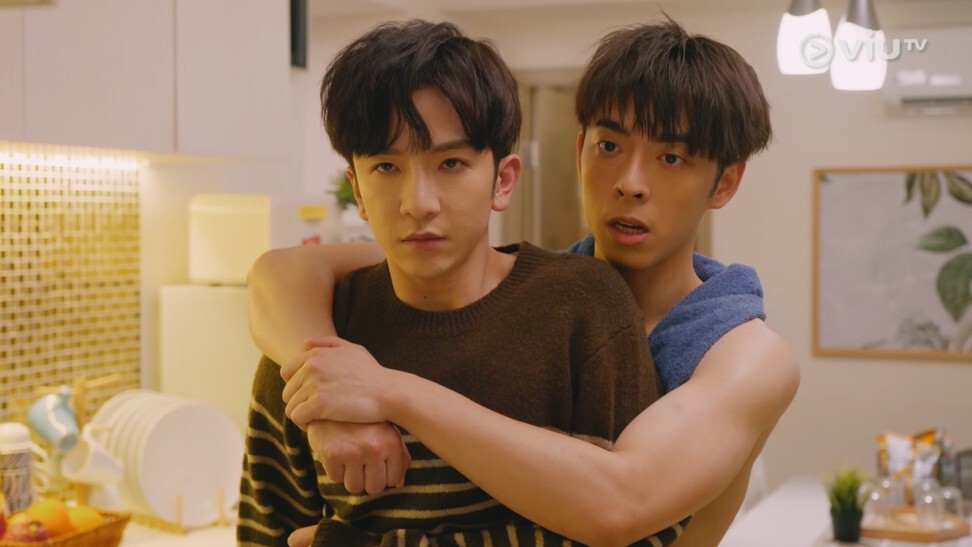
Anson Lo and Edan Lui star in the remake of a Japanese gay drama. Photo: ViuTV
Choi Chi-sum, general secretary of the Society for Truth and Light, a group supporting traditional family values, shrugged off any suggestion the show was a cause for concern, describing it merely as an entertainment product driven by commercial decisions.
“People are not looking surprised because they have accepted the fact that these shows can be aired on TV. But that doesn’t mean their acceptance goes beyond that,” said Choi, urging parents to guide their children when watching such shows.
Tang, from LingU, acknowledged that the popularity of one show was unlikely to bring a sweeping shift in societal attitudes in the long term, but added every scene was bringing small changes.
No comments:
Post a Comment